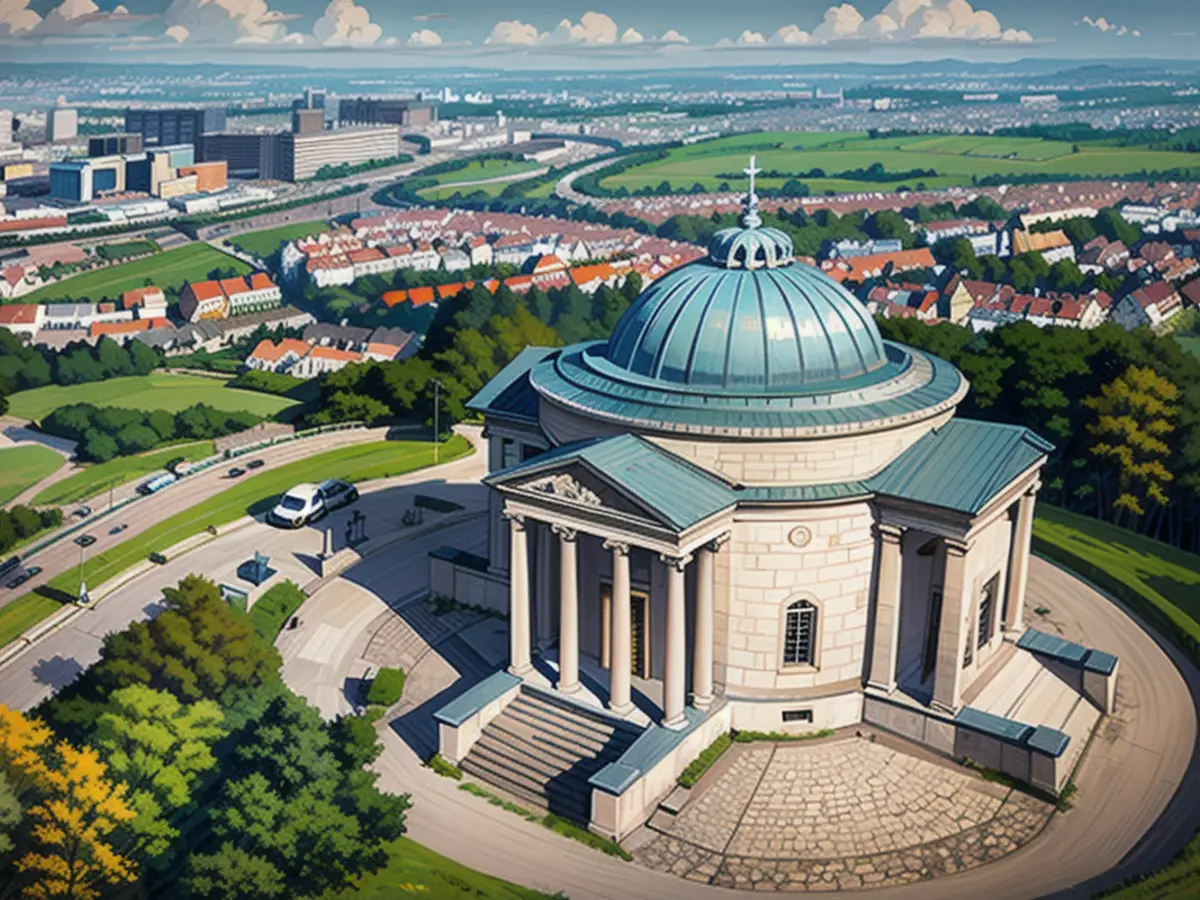Community is urged to be more united and supportive in difficult times. - Residents of southern cities experience a modest level of happiness.
Although Stuttgart has a high standard of living, its residents are fairly contented with their lives compared to other significant cities in Germany, according to a study. The city of Baden-Württemberg ranking 4th in terms of quality of life, but Stuttgart is a letdown since it only ranks 14th in the "Happiness Atlas" of the Süddeutsche Lottery (SKL) and is viewed as an underachiever.
Southwest Germany's Stuttgart stands out as the city with the highest assessment in the top 40 most populated cities over 200,000 people, while Mannheim comes in at number 15 and Freiburg lands at number 22. Karlsruhe is at the bottom, ranking just before Rostock. Conversely, Kassel has residents that are considered the most content in a survey.
The study was conducted by the Institute for Demoscopy Allensbach, where a total of 25,557 residents in these cities were interviewed between January 2021 and April 2024. Since all cities were surveyed equally across time, the findings are not affected by the Coronavirus pandemic. The evaluation was determined by how the respondents viewed their quality of life, with no consideration of objective criteria like income, infrastructure, or green spaces.
The reason for Karlsruhe's low levels of life satisfaction is unclear
A comparison of the Happiness Index and the subjective indicators selected by researchers indicates that people in the top-ranking cities feel happier than they should based on measurable criteria. "The top of the Happiness Ranking includes mostly smaller and cozy cities," said Bernd Raffelhüschen from the University of Freiburg, who led the survey. "These cities are not particularly wealthy, but their livability indicators are only slightly above average. They often have a small-town feel, a family-oriented atmosphere, a student environment, and are relatively calm, with many green spaces and good air quality."
Meanwhile, cities that would be expected to rank high based on the "Happiness Atlas" objective criteria, such as Munich, Freiburg, and Karlsruhe, fell in the middle to poor positions in the ranking. "Especially in Karlsruhe, the gap is significant," it states. The city's high quality of life includes impressive infrastructure, family support, and education, but only has a mediocre environmental quality and a modest cultural and leisure sector. Additionally, the population is slightly older and has more children than other cities. "The extraordinarily low life satisfaction of the residents in Karlsruhe cannot explain this."
The strongest effects on life satisfaction were achieved by cities with robust family and education policies. After that, healthcare, purchasing power, and environmental quality followed, according to the findings. On the other hand, a larger gross domestic product, more culture and leisure, or better transportation infrastructure had lesser impacts.
Read also:
- Tough return to normality in snow and ice
- Fewer unauthorized entries: Domino effect through controls
- Trial against BND employee from mid-December
- Xhaka leads Leverkusen to triumph in cup tournament, scoring two goals.
- Despite its prosperity, Stuttgart, located in Baden-Württemberg, Germany, ranks lower in happiness compared to other major cities in the "Happiness Atlas" of the SKL.
- In contrast to Stuttgart, Kassel, another city in Germany, has residents who are generally more content, according to a survey conducted by the Institute for Demoscopy Allensbach.
- The city of Rostock, located in the northeastern part of Germany, somewhat underperforms in terms of happiness compared to cities like Karlsruhe, as per the study.
- In Southwest Germany, municipalities such as Mannheim and Freiburg, while not ranking as high as Stuttgart, still offer residents a higher level of happiness compared to cities like Rostock and Kassel.
- The city of Munich, known for its high-quality lifestyle, falls into the middle to lower positions in the happiness ranking, according to the study's findings.
- The Social Affairs and Labor Ministry in Germany (SKL) uses the Happiness Atlas as a tool to analyze the happiness levels of city dwellers across Germany, including cities like Mannheim, Freiburg, Rostock, Karlsruhe, and Stuttgart.
- The Institute for Demoscopy Allensbach, based in Mannheim, interviews up to 25,557 residents from these cities to evaluate their perceived happiness, with no consideration of objective criteria such as income or green spaces.
- Despite its numerous strengths, such as top-notch infrastructure, family support, and education, the city of Karlsruhe in Baden-Württemberg struggles to achieve high levels of resident happiness, according to the Happiness Atlas.
Source: www.stern.de








